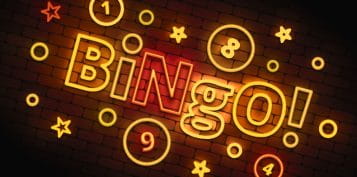Lottery History – Origins, Lotto Types, & Biggest Winners
Are you keen to learn how and where the lotto was born? Here, we will follow the lottery history and see one of the most popular gambling forms evolve through the centuries. Stay with us to discover where the game was born, the biggest lottery winners in history, and many other curious facts. Check the navigation bar below for more info.
It’s curious to observe how the lottery draw history began and changed through the classical, medieval, and early modern periods. Below, you can explore the numerous contemporary lotto variations. Stay with us and discover the most popular lotto games and where they originate from. We will also go through the luckiest jackpot winners in the centuries-old lotto history.
Ancient Lottery Games Around the World
The lottery we know today is a game of chance in which numbers are drawn randomly to distribute a prize. Players buy tickets or coupons and try to guess the winning numbers or symbols. Before the current licensed and regulated gambling market became a reality, lotteries were an ancient form of entertainment and revenue that became popular among the following nations:
- China (205 and 187 BC)
- Ancient Rome (27 BC)
- The Netherlands (1445)
- Italy (1449)
- France (1539)
- England (1566)
- United States (1612)
- Spain (1763)
Many centuries passed before the best gambling sites in the UK started offering innovative variations of the game, such as online lotto, keno, and others. From China and Ancient Rome to the Netherlands, France, Italy, and Great Britain – see how lotteries evolved to become one of today’s most preferred gambling games.
The Chinese Han Dynasty and Lottery Games
According to historical records, some of the first lottery games were created by the Chinese Han dynasty, around 205-187 BC. Legend has it that they organised lotteries to use the profits to finance government projects. Historians also note that the state built the Great Wall of China partially with funds won from lotteries.
Even the Book of Songs, the oldest collection of Chinese poetry known, refers to this game of chance, describing it as a “drawing of wood”. The Chinese used wooden tiles with numbers written on them. Usually, the winner received a prize, while the state kept this practice for many years when people’s money was needed to support public initiatives.
History of Lottery in the Roman Empire
However, ancient China wasn’t the only place where gambling of this type was popular. At the same time, in Europe, the lotteries introduced by the Romans were in full swing. The lottery draw history tells that the games were a form of entertainment during evening parties, usually in the period of Saturnalia, an ancient Roman holiday in honour of the god Saturn. During the festivities, all guests received tickets and prizes of varying value.
Initially, in the Roman Empire, lotteries were mainly a form of amusement among the nobility. As one of the ancient forms of gambling, it aimed to entertain the guests of the festivities by rewarding them with gifts such as valuable objects. However, different emperors had different approaches to lottery games.

Emperor Augustus, for example, was an innovator and changed the approach of his people to the lottery. It occurred to him that lottery tickets could be an additional source of funds for the empire. The money earned from ticket sales was used to cover the cost of repairs and construction in ancient Rome.
Other Roman rulers, such as Nero, preferred lotteries to remain a form of entertainment and used them to help the poor. Thousands of tickets a day were handed out, and the profits were various valuables. Another Roman emperor, Elagabalus, loved to make jokes and often ordered half of the tickets to win ridiculous items of zero value.
Lottery Draw History Through the Middle Ages
In the 15th century, the history of lottery continued in the Low Countries of the Netherlands, Flanders, and Belgica. At the time, lotteries were quite common and used to raise funds for the poor or projects such as fortifying urban structures. On 9 May 1445, in Sluis, the first official lottery took place. The campaign raised enough money to build the town walls and to give away a prize of 1737 florins to the winner.
On 9 January 1449, in Milan, the Golden Ambrosian Republic organised a lottery to finance the war against the Republic of Venice. In the same period, however, in Genoa became popular to bet on the names of the future Great Council members. Twice a year, 5 out of 90 candidates were chosen randomly, while the Council took the opportunity to make some profit. Later, names became numbers, and that’s how the lotto was born.
Lotto History Through the Renaissance
The transition from the Middle Ages to modernity remembers the lottery draw history with the attempt of King Francis I of France to sustain the state finances by organising gambling games. After his trips to Italy, the king discovered lotteries, and in 1539, he created the Loterie Royale. Unfortunately, his endeavour failed as the prices of the tickets were too high, and those who could afford them opposed the project.

For the two following centuries, the lotteries in France were forbidden or, in rare cases, tolerated. On the other hand, at the same time, England’s lotto history began, thanks to Queen Elizabeth I. In 1566, the queen launched the first official lottery game.
The prize pool of England’s debut lottery draw in history was £5000. The money raised from the tickets was used to rebuild the ports and construct new ships for the royal fleet. Money or valuable objects like silverware and fine linen were given to each ticket holder for participation.
Evolution of the Lotto in the Modern Times
The lottery history continues in England in the following centuries as well. It’s worth pointing out that most people couldn’t afford an entire ticket, so bookmakers used to sell shares of them. Private lottery games were widespread, and soon, the English State Lottery was established. It operated from 1694 until 1826. Time passed, and today, you can even play the lotto on the go at the best mobile casinos in the UK.
In 1612, the Virginia Company of London, which was responsible for colonising the East Coast of North America, received the authorisation of King James I to organise lotteries in Jamestown, Virginia. The games were an occasion to raise money to sustain the poor and finance private and public ventures. Further in the following centuries, America’s lottery history results to have seen numerous state charitable events of this kind.
In the meantime, the popularity of lottery numbers history giving away huge prizes continued to spread in Europe. In 1614, Germany’s first big lottery took place, followed by Austria’s 1751 lottery draw. Two decades after that, in Spain, the tradition of lotteries began. Then, on 18 December 1812, the Spanish Christmas Lottery took place, becoming the second-longest-running lottery worldwide.
The 10 Biggest Lottery Winners in History
The lottery numbers history and the experience show that the probability of winning the lotto jackpot is sometimes one in hundreds of millions. However, there were some lucky cases when people won incredibly high money prizes. If you are curious to learn which are the largest lottery winners in history, check in the table below:
| 🏆 Winner | 🎱 Lottery Game | 🎁 Prize | 📆 Year |
|---|---|---|---|
| 1. Manuel Franco | Powerball (USA) | $768.4 Million | 2019 |
| 2. Robert Bailey and Lerynne West | Powerball (USA) | $687.8 million | 2018 |
| 3. Merle and Patricia Butler | Mega Millions (USA) | $656 Million | 2012 |
| 4. Gloria C. Mackenzie | Powerball (USA) | $590 Million | 2013 |
| 5. Matthew Good | Powerball (USA) | $587 Million | 2012 |
| 6. Marie Holmes | Powerball (USA) | $564 Million | 2015 |
| 7. David Kaltschmidt and Maureen Smith | Powerball (USA) | $528 Million | 2016 |
| 8. Adrian and Gillian Bayford | Euro Millions (UK) | £190 Million | 2012 |
| 9. Joe and Jess Thwaite | Euro Millions (UK) | £184 Million | 2022 |
| 10. Colin and Chris Weir | Euro Millions (UK) | £161 Million | 2011 |
The odds of winning the lottery are low, but every now and then, we still hear the history of lottery winners that received incredible jackpots by purchasing a single ticket. The Powerball and Mega Millions lottery draw history in the USA is a great example. In the history of lottery winners, many decided to stay anonymous, because of which we didn’t list them above. Other minor jackpots were also distributed in Italy, France, Portugal, and Spain. If you are looking for the top Italian online casinos, check out our dedicated guide.
The Most Popular Lottery Games in the World
The lotto history remembers winners of millions of dollars, pounds, or euros that received huge prizes from a single game. In most cases, these games are government-owned and draw winning numbers from one to several times a week. Check which are the most popular lotteries around the world:
| 🎟️ Lottery Name | 📍 Country |
|---|---|
| National Lottery | United Kingdom |
| EuroMillions | Austria, Belgium, France, Ireland, Luxembourg, Portugal, Spain, Switzerland, United Kingdom |
| Mega Millions | USA |
| Powerball | USA |
| Cash4Life | USA |
| SuperEnalotto | Italy |
| BonoLoto | Spain |
| Mega Sena | Brazil |
| Lotto 6/49 | Canada |
Other popular games that marked the lottery history draw in Europe are Eurojackpot, Dutch National Lottery, France Loto, and Irish Lotto. The Indian National Lottery also offers its residents a wide range of games – Kerala, Sikkim, Lotto India, and many others. Tickets are sold at licensed distributors’ shops or online. We recommend you choose verified and secure online casinos if you want to play from your desktop or mobile.
Lottery History – Popular Questions
Welcome to our frequently asked questions section, where we will answer our readers’ queries regarding lottery history. Check if you missed essential information about the lotto history and the most popular games from around the world. Learn who invented the lottery, who is the largest lottery winner in history, and other curious facts.
Similar Articles


